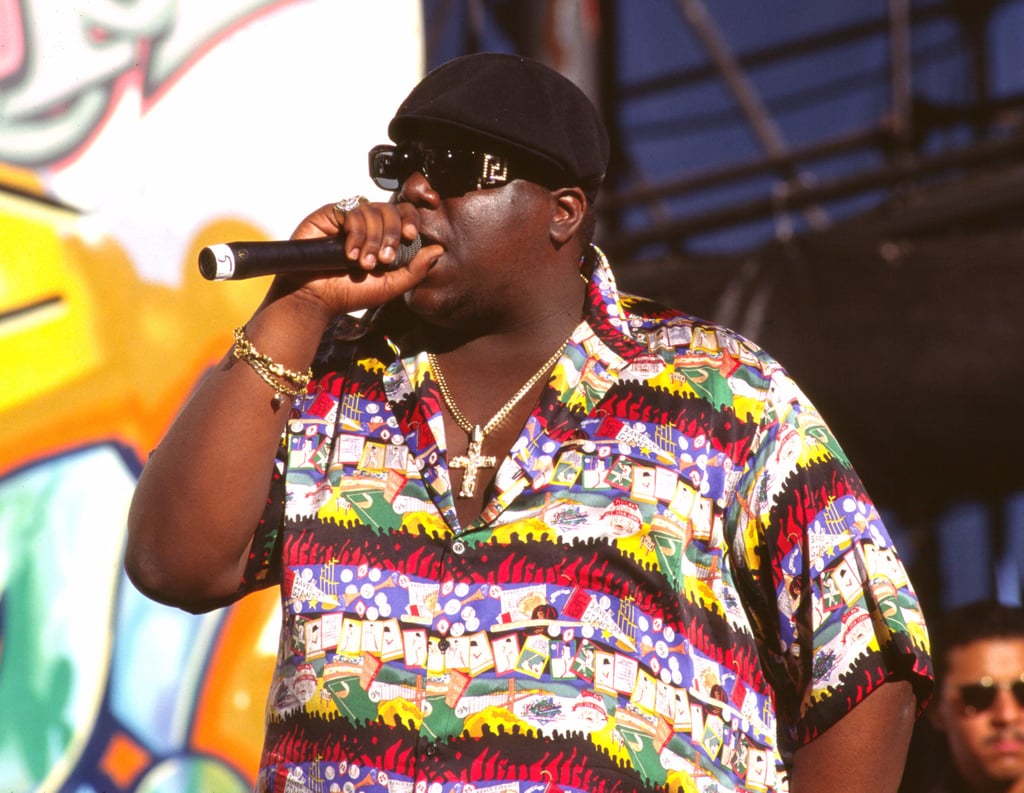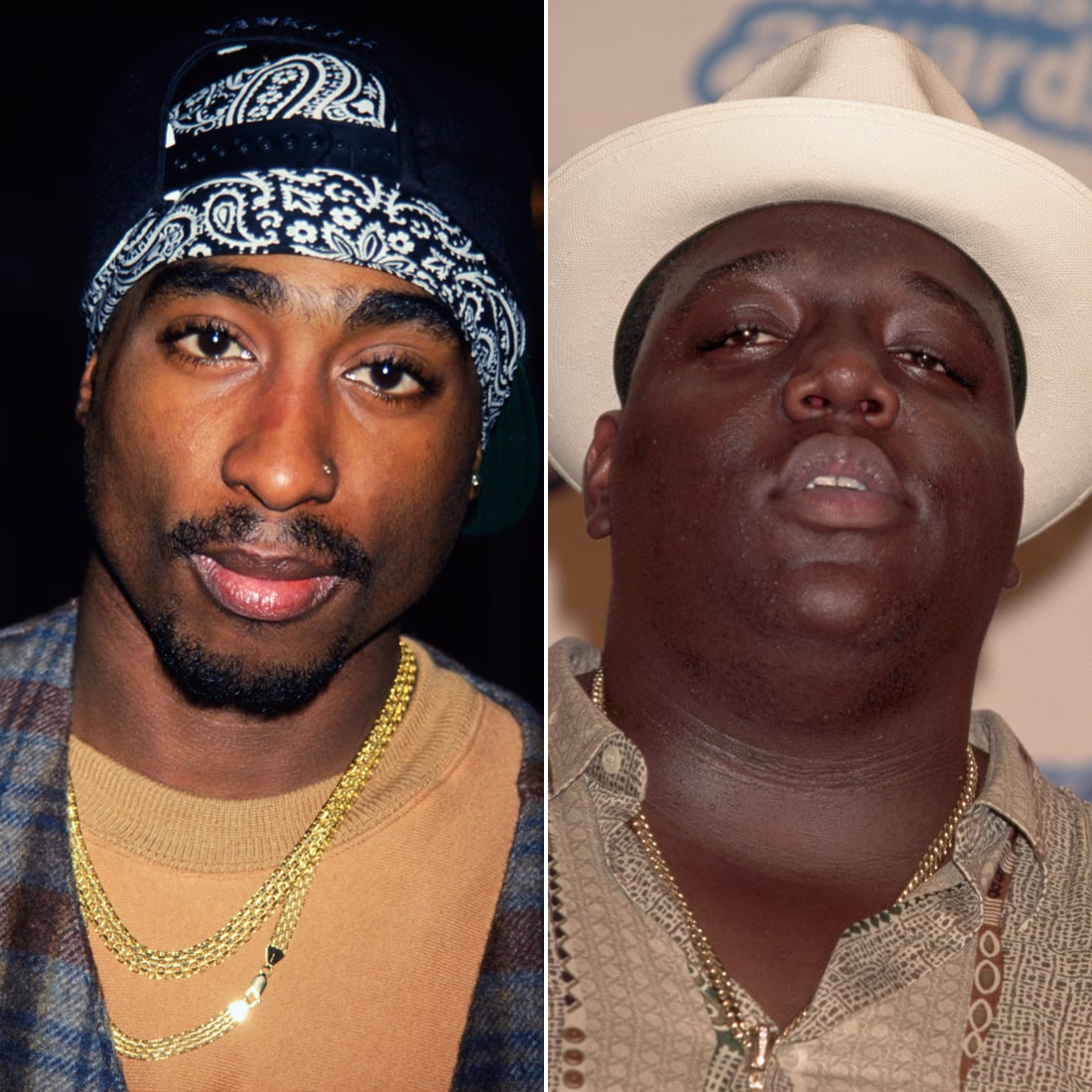When did Biggie die? This question has echoed through the annals of hip-hop history, leaving fans and music lovers in awe and disbelief. On March 9, 1997, the world lost one of its most iconic voices in rap music, Christopher George Latore Wallace, better known as The Notorious B.I.G. or Biggie Smalls. His death was sudden, shocking, and left a void in the music industry that no one could ever fill. But the story doesn’t end there. It’s a tale of talent, ambition, and tragedy that continues to resonate with fans worldwide.
Biggie’s life was as complex and layered as the lyrics he crafted. From his Brooklyn roots to becoming a global superstar, his journey was nothing short of extraordinary. Yet, his untimely death in Los Angeles under mysterious circumstances remains a topic of debate and speculation even today. As we dive into the details, you’ll uncover not only the facts but also the emotions tied to this legendary figure.
This article aims to explore the timeline, the events surrounding his death, and the legacy he left behind. It’s a tribute to a man who redefined rap music and whose influence continues to inspire new generations of artists and fans alike. So, let’s take a closer look at the life and tragic end of the Notorious B.I.G.
Read also:Niche Streaming Services The Ultimate Guide To Discover Hidden Gems
Table of Contents
- Biography of The Notorious B.I.G.
- When Did Biggie Die?
- The Timeline of Biggie’s Death
- Theories Surrounding Biggie’s Death
- The Impact of Biggie’s Death on Hip-Hop
- Biggie’s Lasting Legacy
- Biggie’s Greatest Hits and Albums
- How Fans Reacted to Biggie’s Death
- The Investigation and Legal Proceedings
- Tributes and Memorials to Biggie
Biography of The Notorious B.I.G.
Before we delve into the events surrounding his death, it’s essential to understand the man behind the music. Born in Brooklyn, New York, Biggie grew up in the rough neighborhoods of Bedford-Stuyvesant. His early life was marked by struggles, but his natural talent for storytelling and rhyme set him apart from the crowd. Here’s a quick look at some key facts about Biggie:
Quick Facts About Biggie
| Full Name | Christopher George Latore Wallace |
|---|---|
| Nickname | The Notorious B.I.G., Biggie Smalls |
| Date of Birth | May 21, 1972 |
| Date of Death | March 9, 1997 |
| Place of Birth | Brooklyn, New York |
| Occupation | Rapper, Songwriter |
Biggie’s rise to fame was meteoric. He quickly became known for his deep, resonant voice and intricate lyrics that painted vivid pictures of street life. His debut album, "Ready to Die," is considered one of the greatest rap albums of all time. But behind the music was a man who faced immense challenges, both personal and professional.
When Did Biggie Die?
Let’s get straight to the point. Biggie died on March 9, 1997. But it wasn’t just another day in the life of a rapper. This was a moment that shook the music world to its core. Biggie was gunned down in a drive-by shooting in Los Angeles, a city that had become the epicenter of the East Coast-West Coast hip-hop rivalry.
The events leading up to his death were turbulent. Biggie had just attended the Soul Train Music Awards, where he performed alongside other hip-hop legends. As he left the event, he was riding in a convoy of vehicles when tragedy struck. A black SUV pulled up beside his car, and the rest is history.
The Timeline of Biggie’s Death
Understanding the timeline of Biggie’s death is crucial to grasping the gravity of the situation. Here’s a breakdown of the events:
- March 9, 1997: Biggie attends the Soul Train Music Awards in Los Angeles.
- After the event, he leaves with a group of friends and colleagues.
- While driving through the city, his convoy is ambushed by a black SUV.
- Biggie is shot multiple times and dies shortly after being rushed to the hospital.
It’s a timeline that’s both chilling and heartbreaking. The world lost a legend that night, and the impact was felt across the globe.
Read also:Subscription Models The Ultimate Guide To Unlocking Value And Growth
Theories Surrounding Biggie’s Death
When did Biggie die? We know the date, but the "why" and "how" remain shrouded in mystery. Over the years, numerous theories have surfaced about the circumstances surrounding his death. Some suggest it was related to the infamous East Coast-West Coast feud, while others point to personal vendettas or business disputes.
Key Theories
- The East Coast-West Coast Rivalry: Many believe that Biggie’s death was a direct result of the tension between East Coast and West Coast rappers, particularly his rivalry with Tupac Shakur.
- Business Disputes: Some speculate that Biggie’s death was tied to financial disagreements or drug-related conflicts.
- Personal Vendettas: Another theory suggests that the shooting was motivated by personal grudges against Biggie.
Despite numerous investigations, the truth remains elusive. The case remains unsolved, leaving fans and investigators alike to piece together the puzzle.
The Impact of Biggie’s Death on Hip-Hop
Biggie’s death had a profound impact on the hip-hop community. It marked a turning point in the genre’s history, bringing to light the dangers of gang violence and the destructive nature of rivalries. Many artists spoke out about the need for unity and peace in the music industry.
For fans, it was a devastating loss. Biggie wasn’t just a rapper; he was a storyteller, a voice for the streets, and a symbol of hope for many young people. His death left a void that no one could fill, and it served as a stark reminder of the fragility of life.
Biggie’s Lasting Legacy
Even though Biggie’s life was cut tragically short, his legacy lives on. His music continues to inspire new generations of artists and fans. Songs like "Juicy," "Big Poppa," and "Hypnotize" remain staples in the hip-hop canon, and his influence can be heard in the work of countless rappers today.
Biggie’s legacy extends beyond music. He became a cultural icon, a symbol of resilience and creativity. His story is one of triumph over adversity, and his music continues to resonate with people from all walks of life.
Biggie’s Greatest Hits and Albums
Biggie’s discography is a testament to his talent and artistry. Here are some of his most iconic works:
- Ready to Die: His debut album, released in 1994, is considered one of the greatest rap albums of all time.
- Life After Death: Released posthumously in 1997, this double album showcased Biggie’s versatility and depth as an artist.
- Big Poppa: A hit single that became one of the most popular tracks of the 90s.
- Hypnotize: A track that won a Grammy and cemented Biggie’s place in music history.
These works continue to be celebrated and studied by music enthusiasts around the world.
How Fans Reacted to Biggie’s Death
When did Biggie die? For fans, it was a moment of disbelief and heartbreak. Social media wasn’t as prevalent back then, but the outpouring of grief was palpable. Fans gathered in the streets, held memorials, and shared stories about how Biggie’s music had impacted their lives.
His death sparked a global conversation about the dangers of violence in the music industry and the importance of celebrating the lives of those who have left an indelible mark on the world.
The Investigation and Legal Proceedings
Despite numerous investigations, the case of Biggie’s death remains unsolved. Over the years, various leads have been pursued, but no definitive answers have emerged. The LAPD, the FBI, and private investigators have all been involved in the case, but the truth remains elusive.
Legal proceedings have also been part of the story. Lawsuits and counter-lawsuits have been filed by various parties involved in the investigation, but none have led to a conclusive resolution.
Tributes and Memorials to Biggie
Biggie’s memory lives on through tributes and memorials around the world. From street art in Brooklyn to annual events celebrating his life and music, fans continue to honor his legacy in meaningful ways.
His impact on the music industry and popular culture cannot be overstated. He was a true original, a voice that spoke to the hearts of many, and his legacy will continue to inspire future generations.
Conclusion
When did Biggie die? March 9, 1997, but his story continues to unfold. His life and music have left an indelible mark on the world, and his influence can be felt in every corner of the music industry. As we reflect on his legacy, let’s remember the man behind the music, the struggles he overcame, and the art he created.
Take a moment to appreciate the music that Biggie left behind, and share his story with others. Let’s keep his memory alive by celebrating the life and work of a true legend. And if you haven’t already, check out his music and see why he continues to inspire so many people around the globe.


